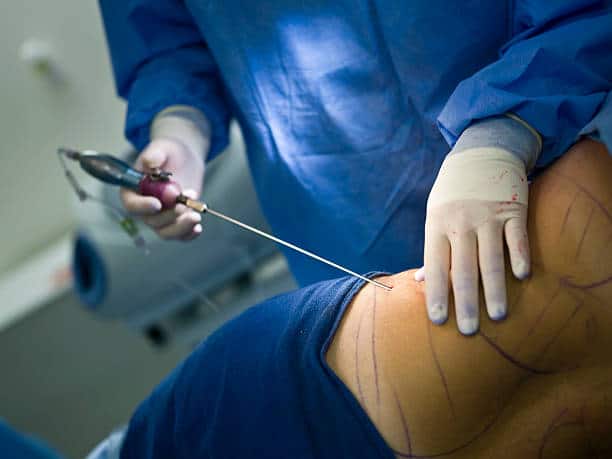Transform Your Skin with Plastic Surgery Options
Plastic surgery is a medical specialty that involves the use of surgical procedures to improve or restore a person’s appearance and function. It can involve reconstructive surgery, cosmetic surgery, and non-invasive treatments such as injectables. Skin rejuvenation is one of the most popular types of plastic surgery, as it helps to reduce the signs of aging in the skin and make patients look younger.
Definition of Plastic Surgery
Plastic surgery encompasses a wide range of surgical techniques and procedures, from reconstructive surgeries to cosmetic surgeries. Reconstructive surgeries are typically performed to correct physical deformities caused by birth defects, trauma, disease, or injury. Cosmetic surgeries are typically performed to enhance a person’s appearance, such as rhinoplasty (nose job) or breast augmentation. Non-invasive treatments such as injectables can also be used for skin rejuvenation.
Overview of Skin Aging
The process of aging causes changes in our skin that can lead to wrinkles, sagging skin, age spots, and other signs of aging. This is due to a decrease in collagen production with age, which leads to thinning skin and loss of elasticity. Sun exposure can also cause premature aging by damaging the collagen in the skin.
Benefits of Skin Rejuvenation
skin rejuvenation procedures help to reduce the signs of aging in the skin by stimulating collagen production and improving elasticity. This can help patients look more youthful and vibrant without having to undergo invasive surgery. The results can last for several years depending on the type of procedure used and how well a patient takes care of their skin after treatment.
Types of Skin Rejuvenation Procedures
Skin rejuvenation procedures are designed to improve the appearance and texture of skin, reduce wrinkles and sun damage, and restore a youthful appearance. There are a variety of treatments available, ranging from chemical peels to lasers, microneedling to microdermabrasion, neuromodulators and fillers for skin tightening, and more. Depending on the desired outcome, there is likely a suitable treatment option available for you.
Chemical Peels
Chemical peels are one of the most common types of skin rejuvenation treatments available. These peels use a combination of chemicals to exfoliate and remove the outermost layer of skin cells. This process can help reduce wrinkles, age spots, acne scars, and uneven pigmentation. Chemical peels can also help stimulate collagen production in the underlying layers of skin for improved elasticity and firmness.
Lasers
Laser treatments are another popular option for skin rejuvenation. Lasers can be used to treat many different conditions such as wrinkles, sun damage, age spots, acne scars, rosacea, enlarged pores, melasma, spider veins, and more. Different types of lasers target different issues with varying levels of intensity. For example, fractional laser resurfacing is used to treat wrinkles while intense pulsed light (IPL) therapy is used to reduce sun damage.
Microneedling
Microneedling is a minimally invasive procedure that uses tiny needles to create microscopic punctures in the skin’s surface. This stimulates collagen production which helps improve the appearance of fine lines and wrinkles as well as other signs of aging like laxity or sagging skin. It can also help reduce the appearance of acne scars and stretch marks by stimulating new tissue growth in these areas.
Microdermabrasion
Microdermabrasion is a non-invasive procedure that uses an abrasive tool to gently exfoliate the outer layer of dead skin cells from the face or body. This helps improve texture by removing dullness or rough patches on the surface of the skin while also stimulating collagen production for improved elasticity and firmness over time. It can also help reduce discoloration caused by age spots or sun damage as well as acne scars or other blemishes on the surface of the skin.
Neuromodulators, Fillers and Other Skin Tightening Procedures
Neuromodulators such as Botox or Dysport are popular injectables that can be used to temporarily relax facial muscles in order to reduce wrinkles around areas like eyes or forehead. Fillers such as Juvederm or Restylane are often used to add volume to areas like cheeks or lips that have lost volume due to aging. Other procedures such as radiofrequency or ultrasound-based treatments can be used for non-invasive skin tightening without any downtime associated with surgery or other more invasive treatments.
Skin rejuvenation procedures range from chemical peels to lasers, microneedling to microdermabrasion, neuromodulators and fillers for skin tightening. Treatments can reduce wrinkles, sun damage, age spots, acne scars, enlarged pores, melasma, spider veins, and more.
Skin Care Products
skin care products are essential for maintaining healthy skin and preventing signs of aging. While skin rejuvenation procedures can help restore a youthful appearance, they should be used in conjunction with an effective skin care regimen to achieve the best results.
Sunscreen
Using sunscreen is one of the most important steps in any anti-aging regimen. Sun exposure is a major cause of premature skin aging, leading to wrinkles, age spots, and other signs of damage. Sunscreen helps protect the skin from UV rays, reducing the risk of developing these conditions. It’s recommended that people use a broad-spectrum sunscreen with an SPF of at least 30 every day and reapply every two hours when spending time outdoors.
Vitamin A Derivatives
Vitamin A derivatives such as retinoids and retinol are also beneficial for preventing signs of aging. These ingredients work by stimulating cell turnover and collagen production, which helps reduce wrinkles and fine lines while improving overall texture and tone. Retinoids can be found in both over-the-counter creams as well as prescription medications. They’re typically applied once or twice daily before bedtime after cleansing the face. It’s important to use sunscreen when using vitamin A derivatives since they can increase sensitivity to UV rays.
In addition to sunscreen and vitamin A derivatives, there are many other products available that can help improve the appearance of aging skin. Antioxidants such as vitamins C and E can help protect against free radical damage while hyaluronic acid helps keep skin hydrated. Peptides are another popular ingredient that can help stimulate collagen production for firmer, smoother looking skin.
Finding the right combination of products for your individual needs is key to achieving optimal results from your anti-aging regimen. Speak with your board-certified plastic surgeon about which products may be best suited for you based on your unique concerns and goals.
Choosing a Board-Certified Plastic Surgeon
When it comes to skin rejuvenation, it is important to choose a board-certified plastic surgeon who has the qualifications and experience necessary to provide you with the best possible results. A board-certified plastic surgeon is one who has completed an accredited residency program in plastic surgery and has passed both written and oral examinations administered by the American Board of Plastic Surgery (ABPS). This certification demonstrates that the plastic surgeon has met the highest standards of education, training, and experience in the field of plastic surgery.
Qualifications to Look For
When selecting a board-certified plastic surgeon, it is important to look for certain qualifications. The most important qualification is that they are certified by the ABPS. In addition, you should make sure that they have extensive experience performing skin rejuvenation procedures such as chemical peels, laser treatments, microneedling, microdermabrasion, neuromodulators, fillers and other skin tightening procedures. You should also inquire about their post-operative care plan and whether they offer any follow up visits after your procedure.
It is also important to make sure that your board-certified plastic surgeon is up to date on all safety protocols and guidelines related to skin rejuvenation procedures. They should be knowledgeable about potential risks associated with each procedure as well as how to manage any potential complications that may arise during or after your procedure.
Finally, you should ensure that your board-certified plastic surgeon has a good reputation among their peers and patients alike. Ask for references from past patients or read online reviews from other patients who have had similar procedures done by the same doctor.
Why Choose a Board-Certified Plastic Surgeon?
Choosing a board-certified plastic surgeon ensures that you are getting the highest quality care available when it comes to skin rejuvenation procedures. These surgeons are highly trained professionals who have dedicated years of study and practice in order to become certified by the ABPS. This means that they have a deep understanding of how to safely perform various types of skin rejuvenation procedures in order to achieve optimal results with minimal risk of complications.
In addition, these surgeons have access to advanced technologies and techniques which can help maximize your results while minimizing discomfort or downtime associated with more invasive treatments such as lasers or chemical peels. Finally, choosing a board-certified plastic surgeon gives you peace of mind knowing that you are being treated by someone who is highly qualified and experienced in providing safe and effective skin rejuvenation treatments.
Choose board-certified plastic surgeon for highest quality care, extensive experience, safety protocols, and good reputation.




